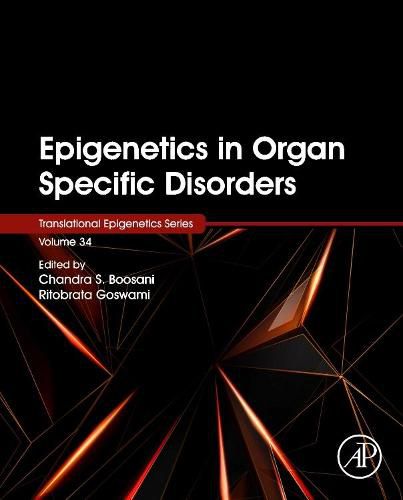Readings Newsletter
Become a Readings Member to make your shopping experience even easier.
Sign in or sign up for free!
You’re not far away from qualifying for FREE standard shipping within Australia
You’ve qualified for FREE standard shipping within Australia
The cart is loading…






Epigenetics in Organ Specific Disorders, a new volume in the Translational Epigenetics series, provides a foundational overview and nuanced analysis of epigenetic gene regulation distinct to each organ type and organ specific disorders, fully elucidating the epigenetics pathways that promote and regulate disease. After a brief introduction, chapter authors compare epigenetic regulations across normal and disease conditions in different organ tissues, exploring similarities and contrasts. The role of epigenetic mechanisms in stem cells, cell-matrix interactions and cell proliferation, cell migration, cellular apoptosis, necrosis, pyknosis, tumor suppression, and immune responses across different organ types are examined in-depth.
Organ specific epigenetic mechanisms and biomarkers of early use in developing drugs, which can selectively target the organ of interest, are also explored to enable new precision therapies.
$9.00 standard shipping within Australia
FREE standard shipping within Australia for orders over $100.00
Express & International shipping calculated at checkout
Epigenetics in Organ Specific Disorders, a new volume in the Translational Epigenetics series, provides a foundational overview and nuanced analysis of epigenetic gene regulation distinct to each organ type and organ specific disorders, fully elucidating the epigenetics pathways that promote and regulate disease. After a brief introduction, chapter authors compare epigenetic regulations across normal and disease conditions in different organ tissues, exploring similarities and contrasts. The role of epigenetic mechanisms in stem cells, cell-matrix interactions and cell proliferation, cell migration, cellular apoptosis, necrosis, pyknosis, tumor suppression, and immune responses across different organ types are examined in-depth.
Organ specific epigenetic mechanisms and biomarkers of early use in developing drugs, which can selectively target the organ of interest, are also explored to enable new precision therapies.